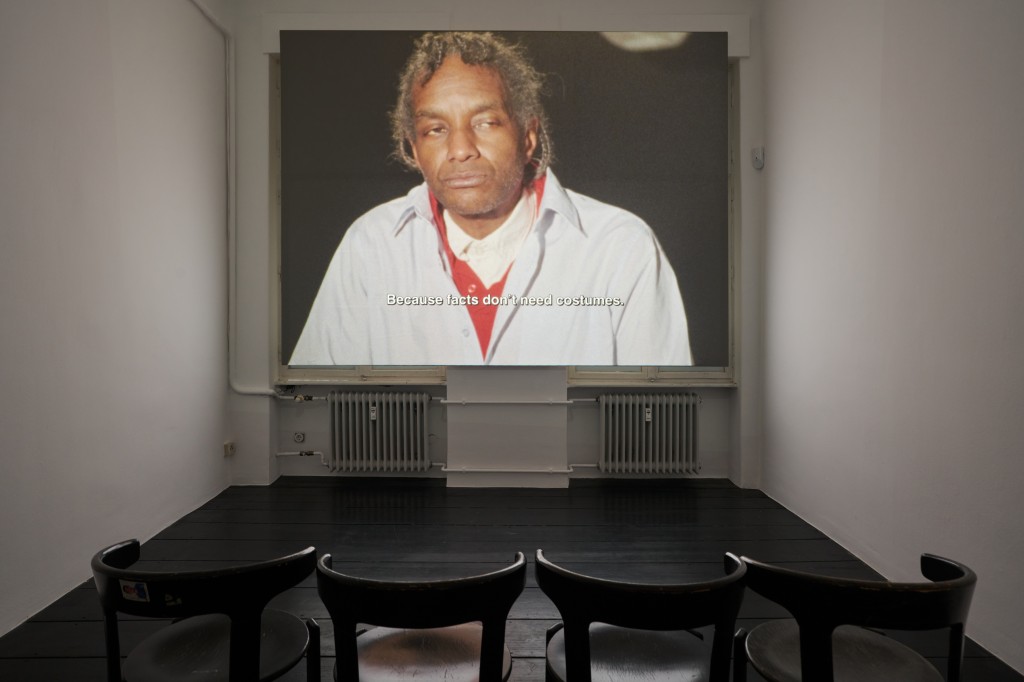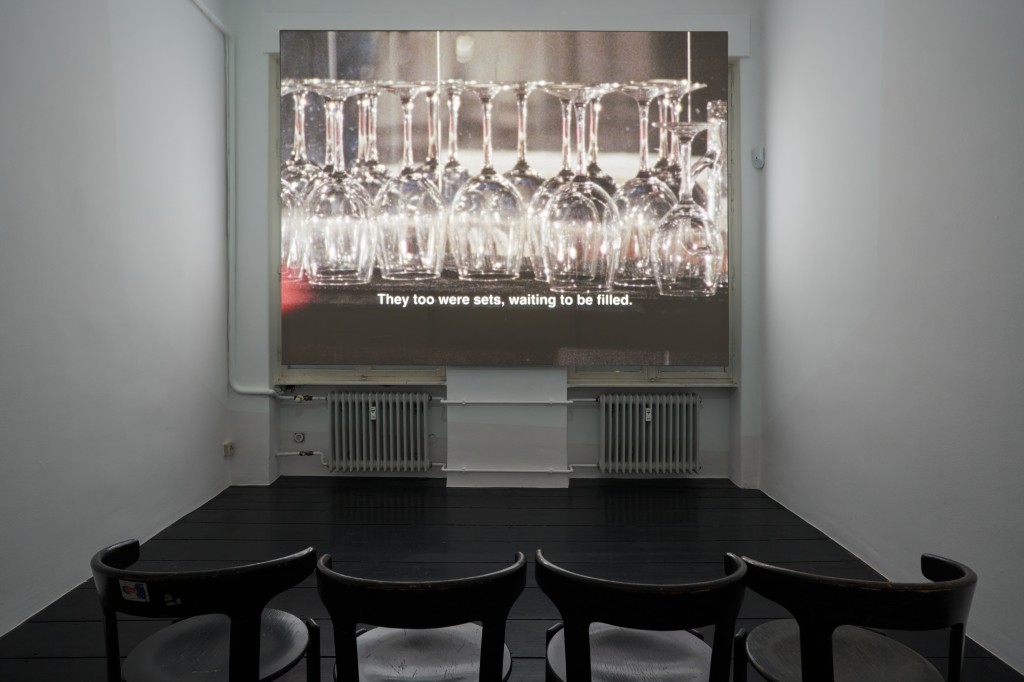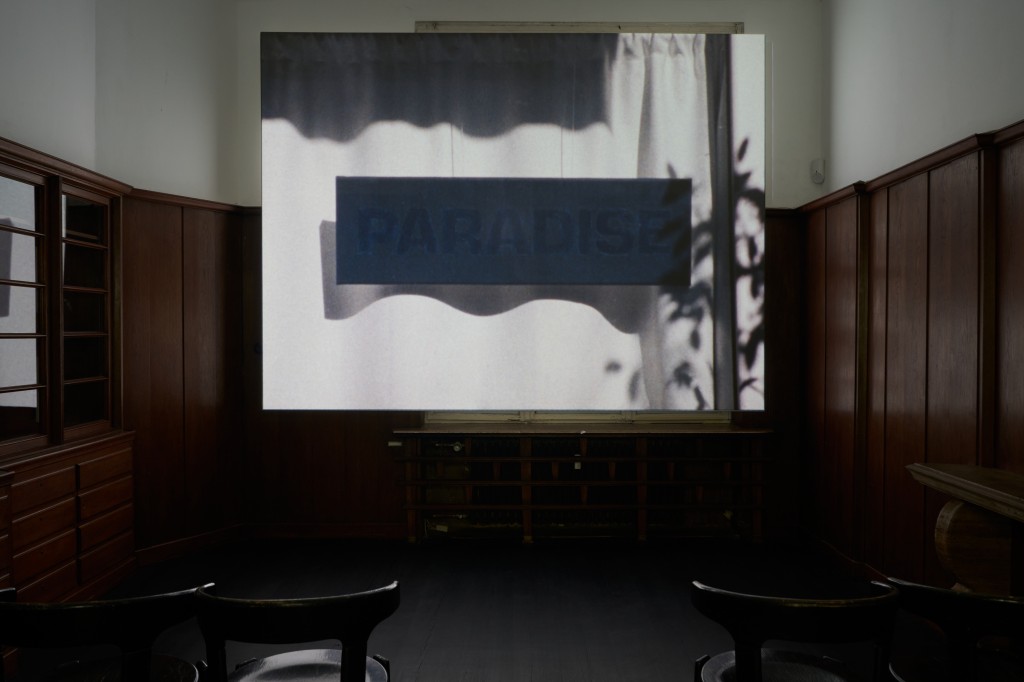
Paradise, 2020–2022
16 mm film transferred to HD video with sound, 81:42 min.
Photo: © Graysc / Dotgain
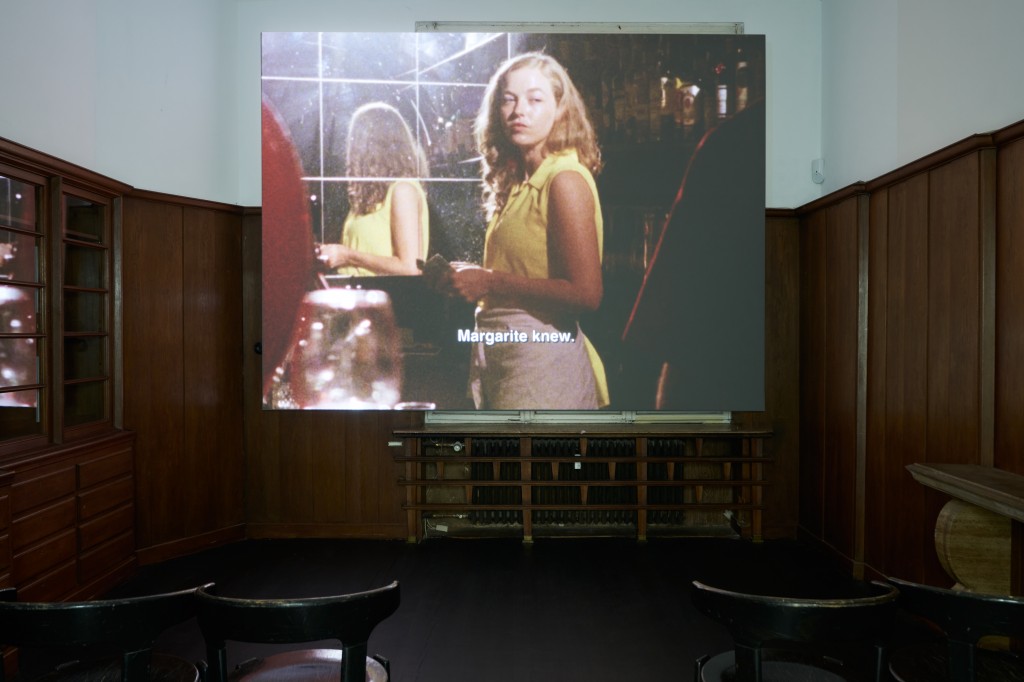
Paradise, 2020–2022
16 mm film transferred to HD video with sound, 81:42 min.
Photo: © Graysc / Dotgain
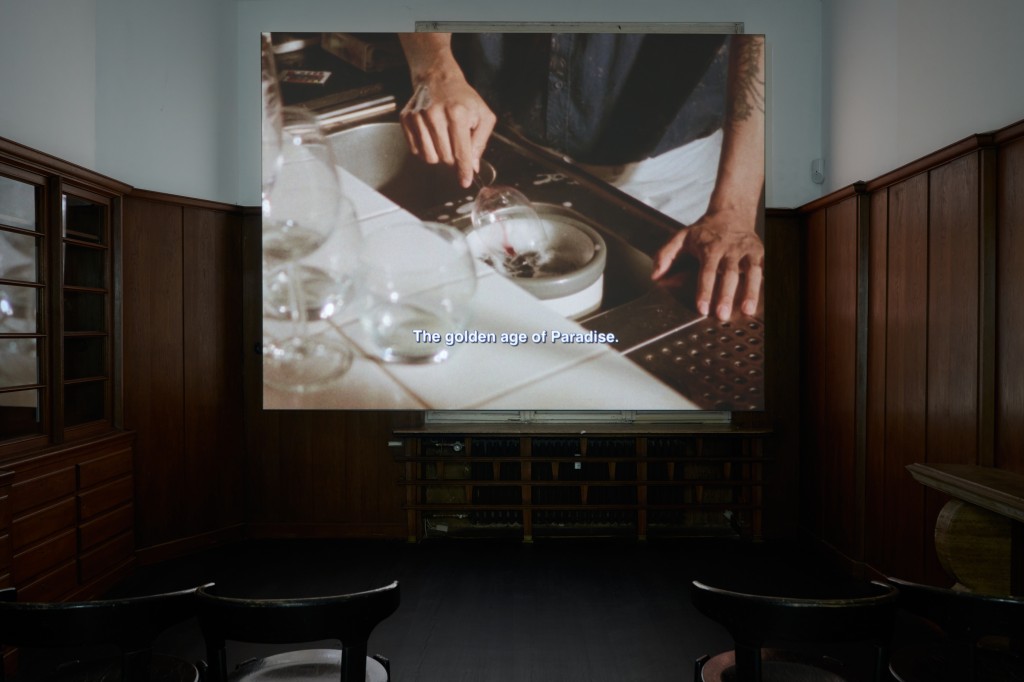
Paradise, 2020–2022
16 mm film transferred to HD video with sound, 81:42 min.
Photo: © Graysc / Dotgain
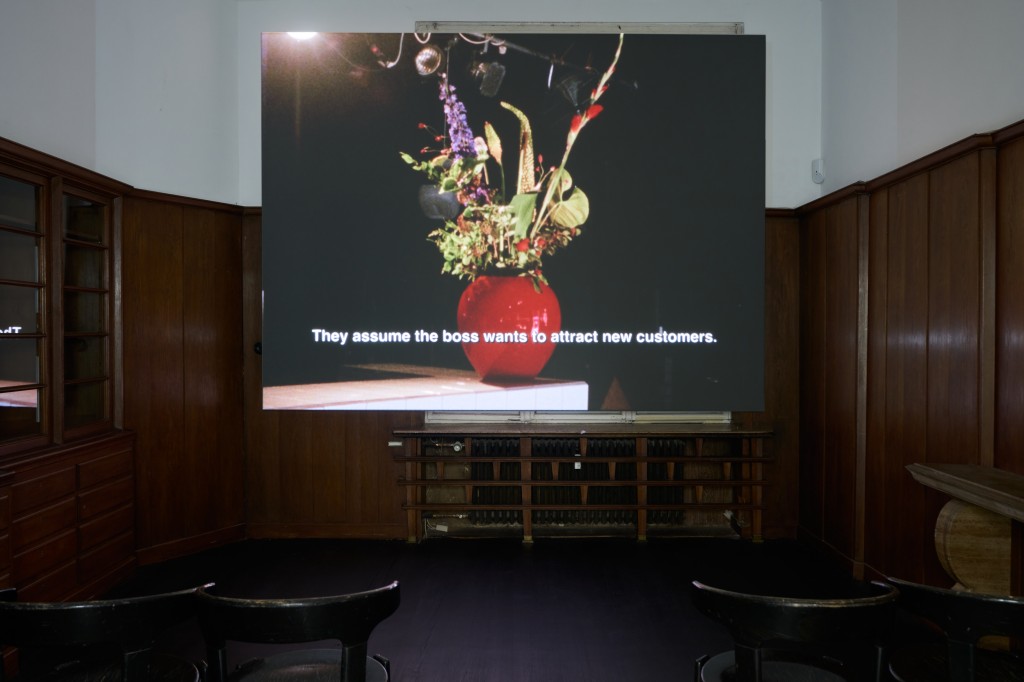
Paradise, 2020–2022
16 mm film transferred to HD video with sound, 81:42 min.
Photo: © Graysc / Dotgain
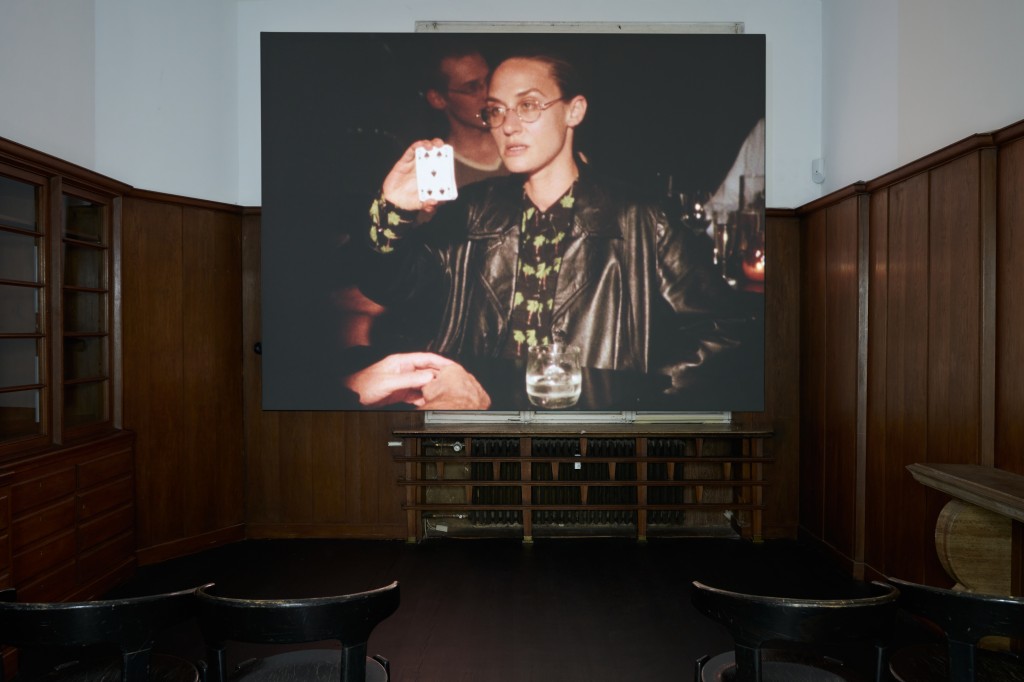
Paradise, 2020–2022
16 mm film transferred to HD video with sound, 81:42 min.
Photo: © Graysc / Dotgain
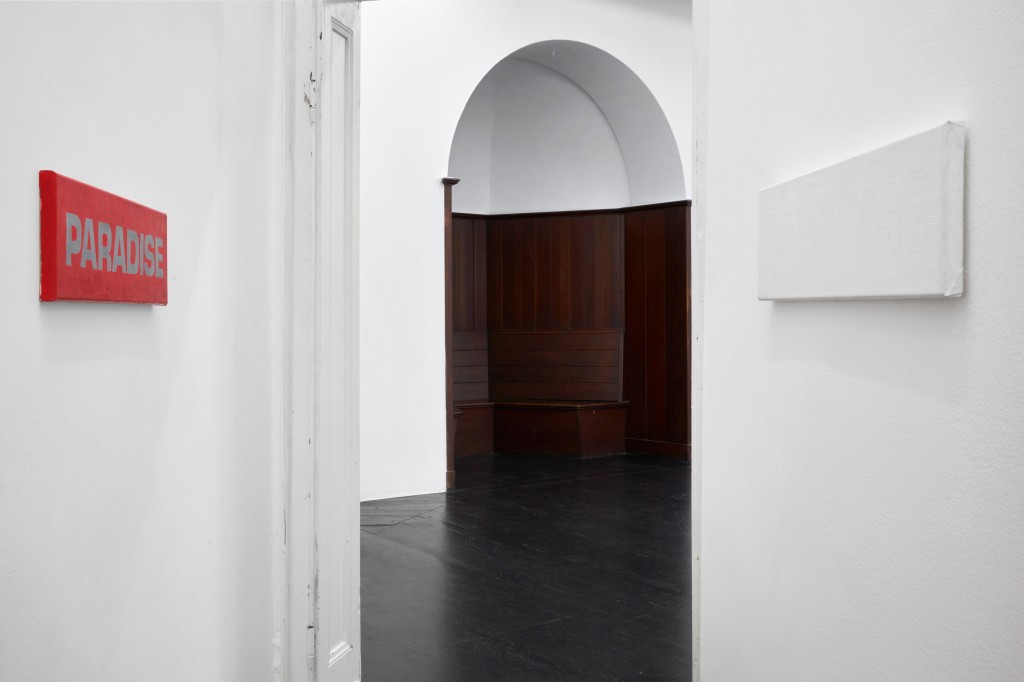
Calla Henkel & Max Pitegeoff, Paradise, 2020–2022, Galerie Isabella Bortolozzi, Berlin
Photo: © Graysc / Dotgain
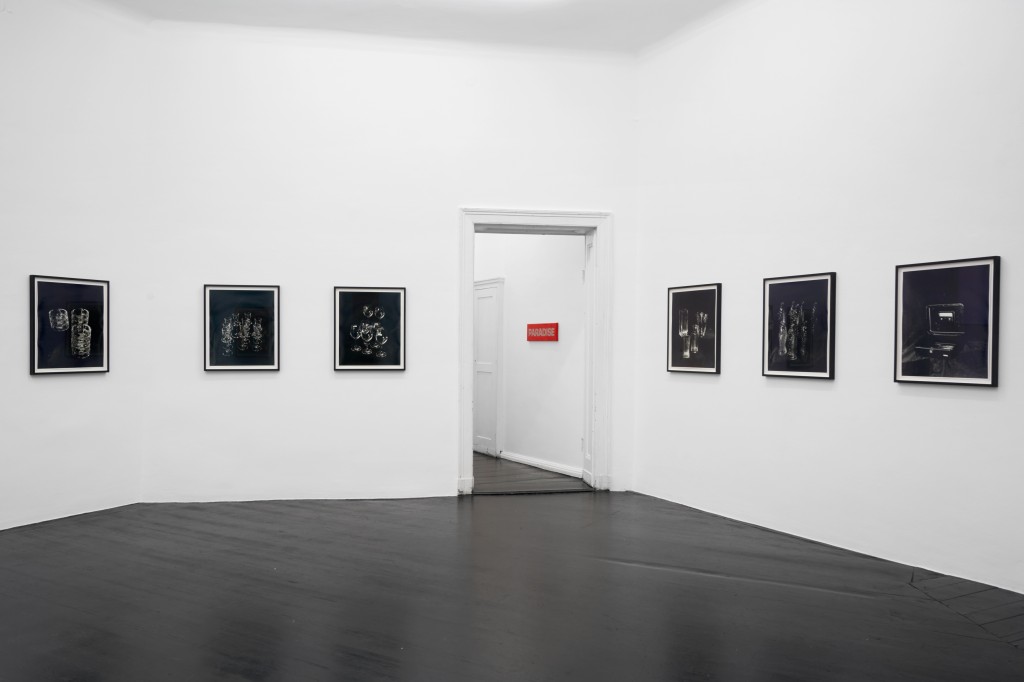
Calla Henkel & Max Pitegeoff, Paradise, 2020–2022, Galerie Isabella Bortolozzi, Berlin
Photo: © Graysc / Dotgain
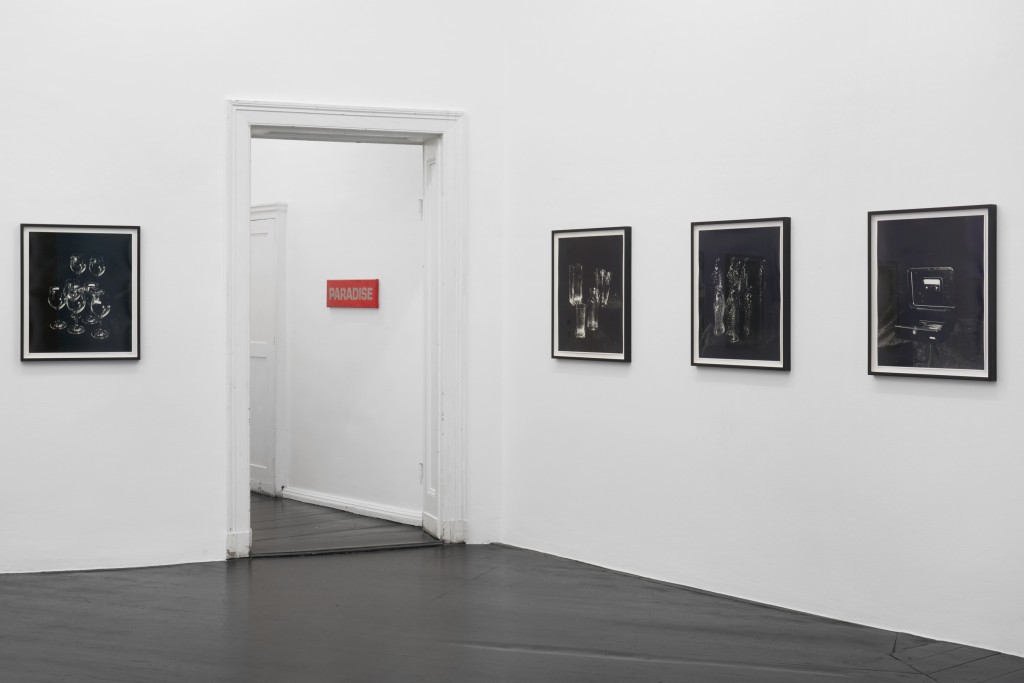
Calla Henkel & Max Pitegeoff, Paradise, 2020–2022, Galerie Isabella Bortolozzi, Berlin
Photo: © Graysc / Dotgain
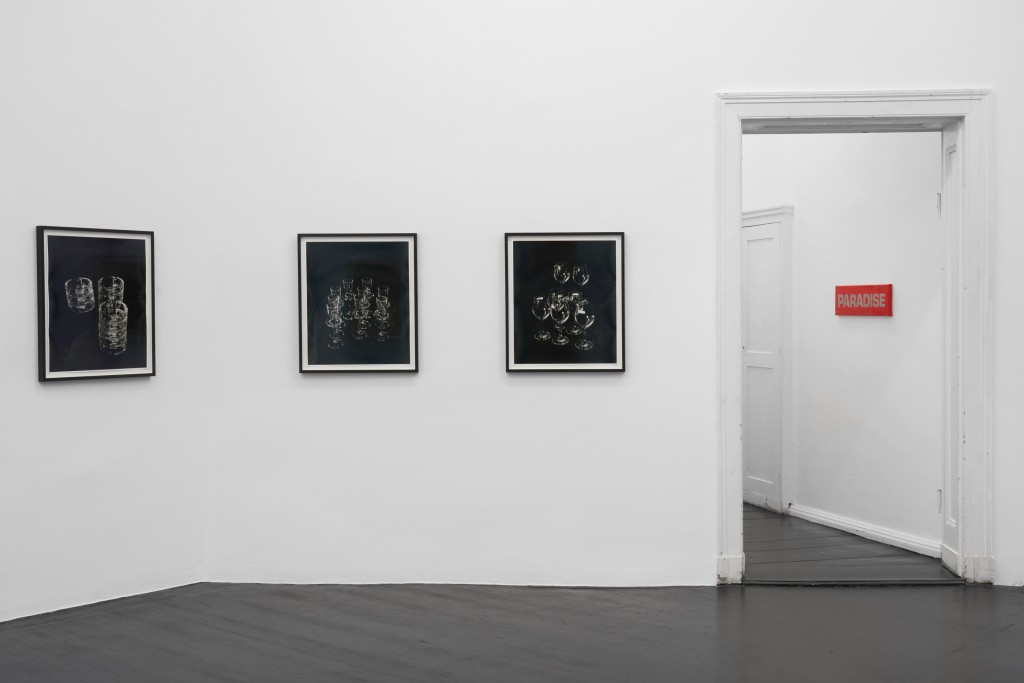
Calla Henkel & Max Pitegeoff, Paradise, 2020–2022, Galerie Isabella Bortolozzi, Berlin
Photo: © Graysc / Dotgain
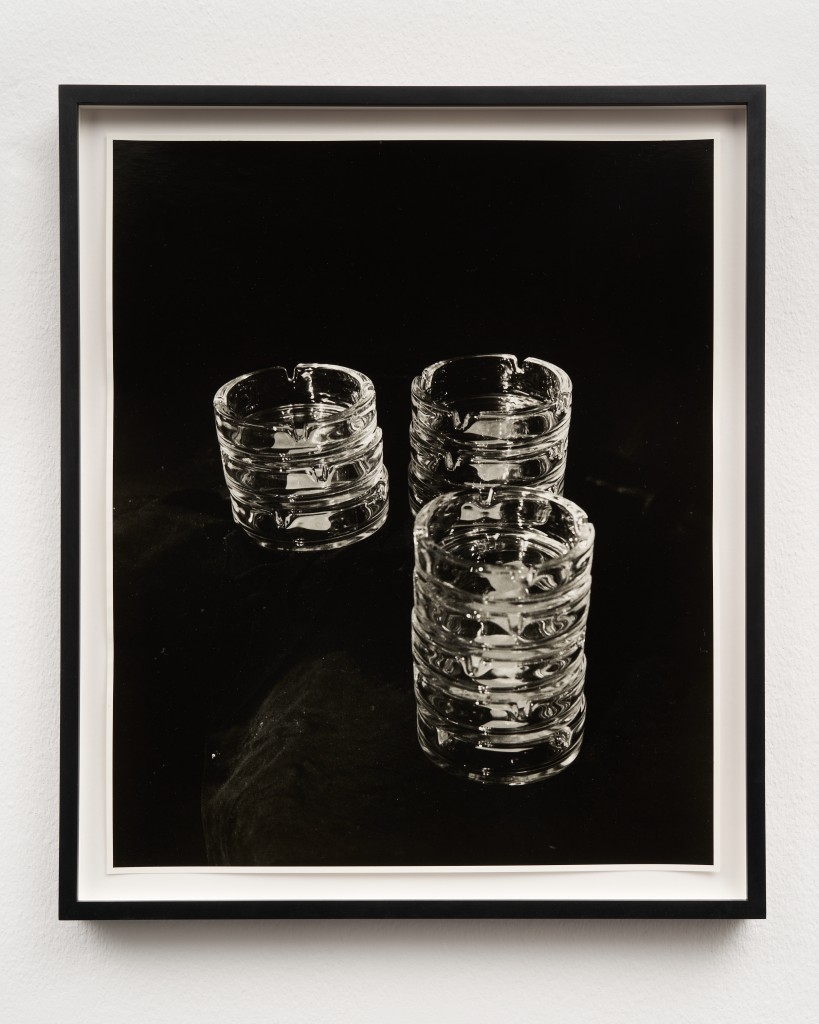
11 Unused Glass Ashtrays, 2022
Silver gelatin print, 67.2 x 56.9 x 3.5 cm
Photo: © Graysc / Dotgain
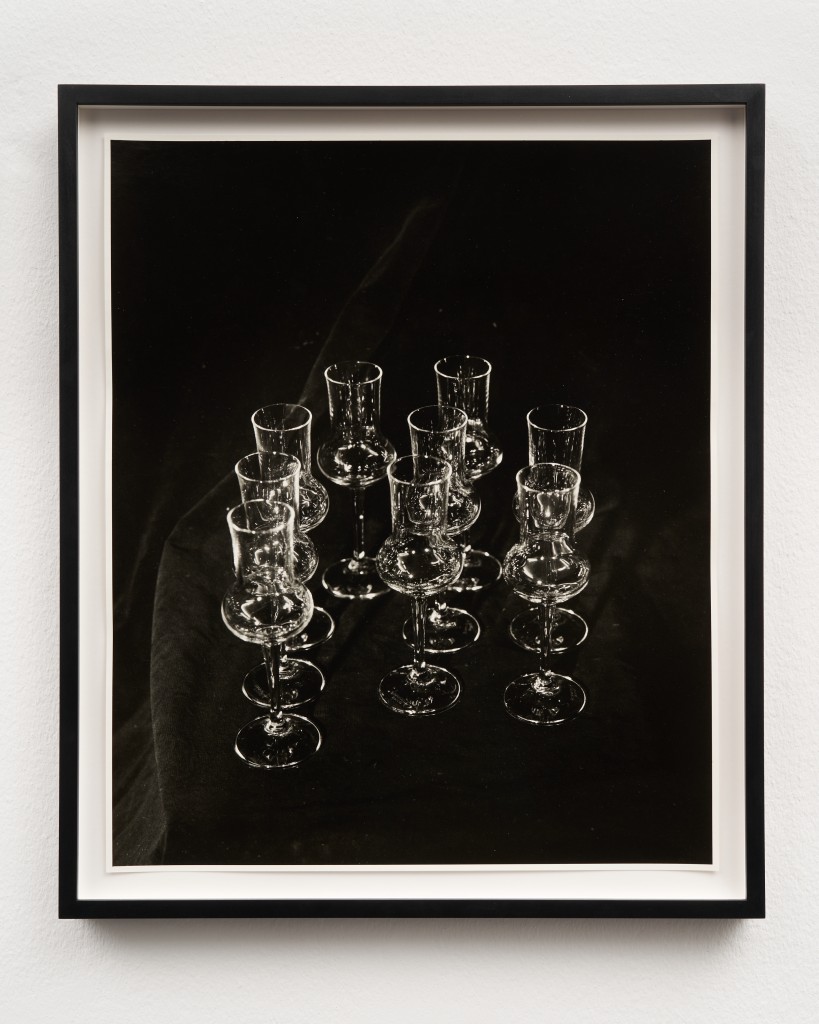
9x Grappa Glasses 87ml, 2022
Silver gelatin print, 67.2 x 56.9 x 3.5 cm
Photo: © Graysc / Dotgain
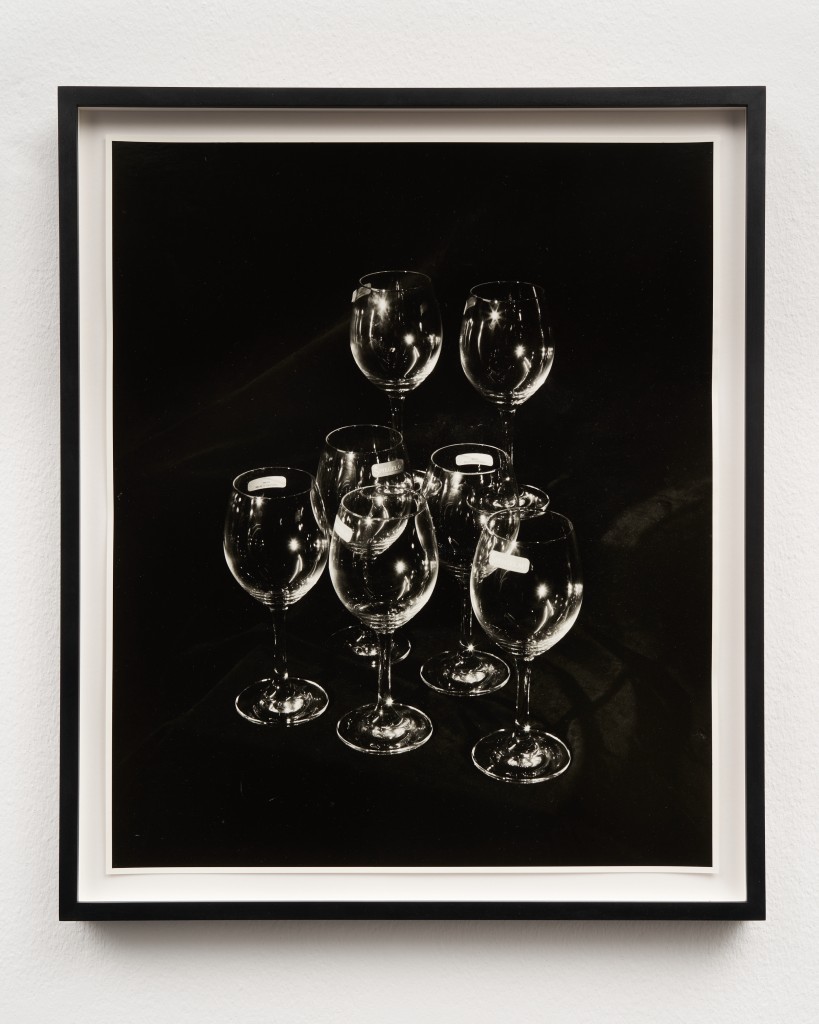
7x Spiegelau Wine Glasses 2cl, 2022
Silver gelatin print, 67.2 x 56.9 x 3.5 cm
Photo: © Graysc / Dotgain
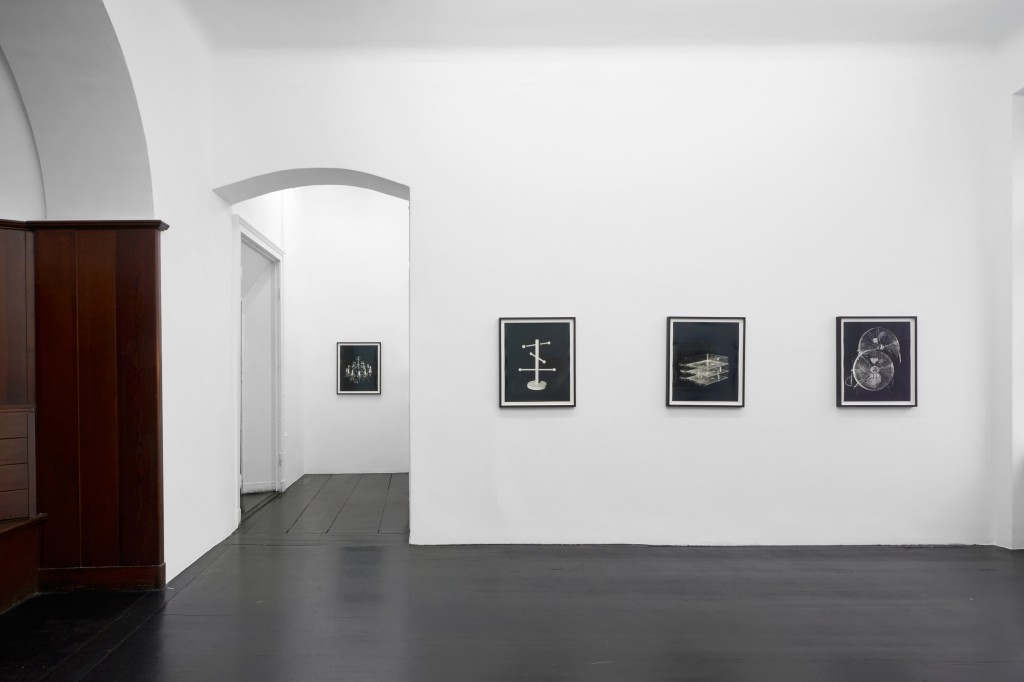
Calla Henkel & Max Pitegeoff, Paradise, 2020–2022, Galerie Isabella Bortolozzi, Berlin
Photo: © Graysc / Dotgain
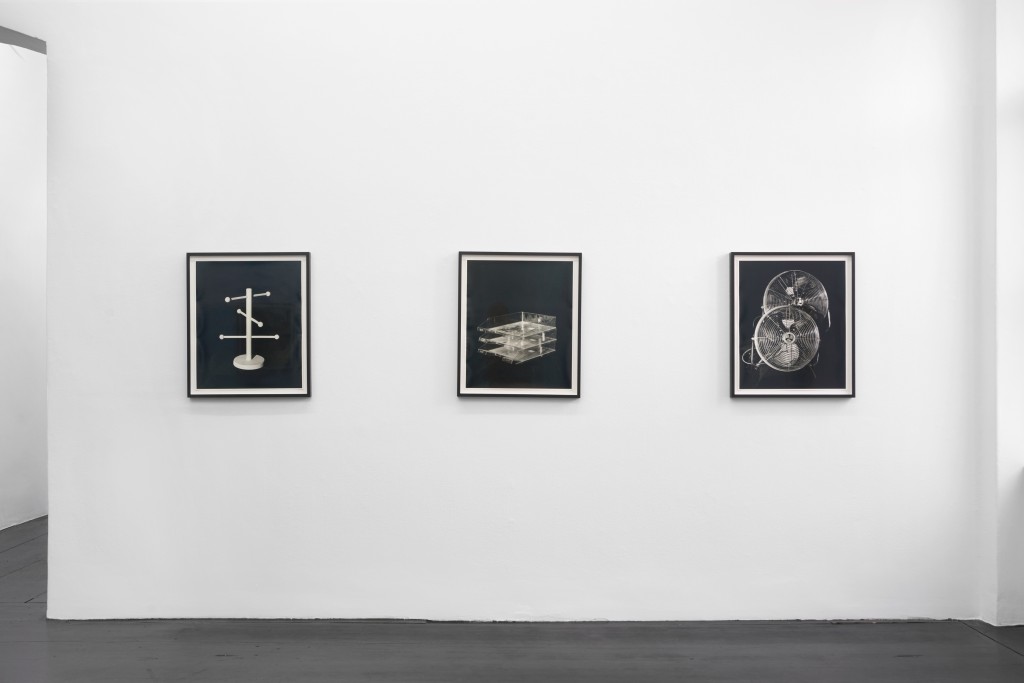
Calla Henkel & Max Pitegeoff, Paradise, 2020–2022, Galerie Isabella Bortolozzi, Berlin
Photo: © Graysc / Dotgain
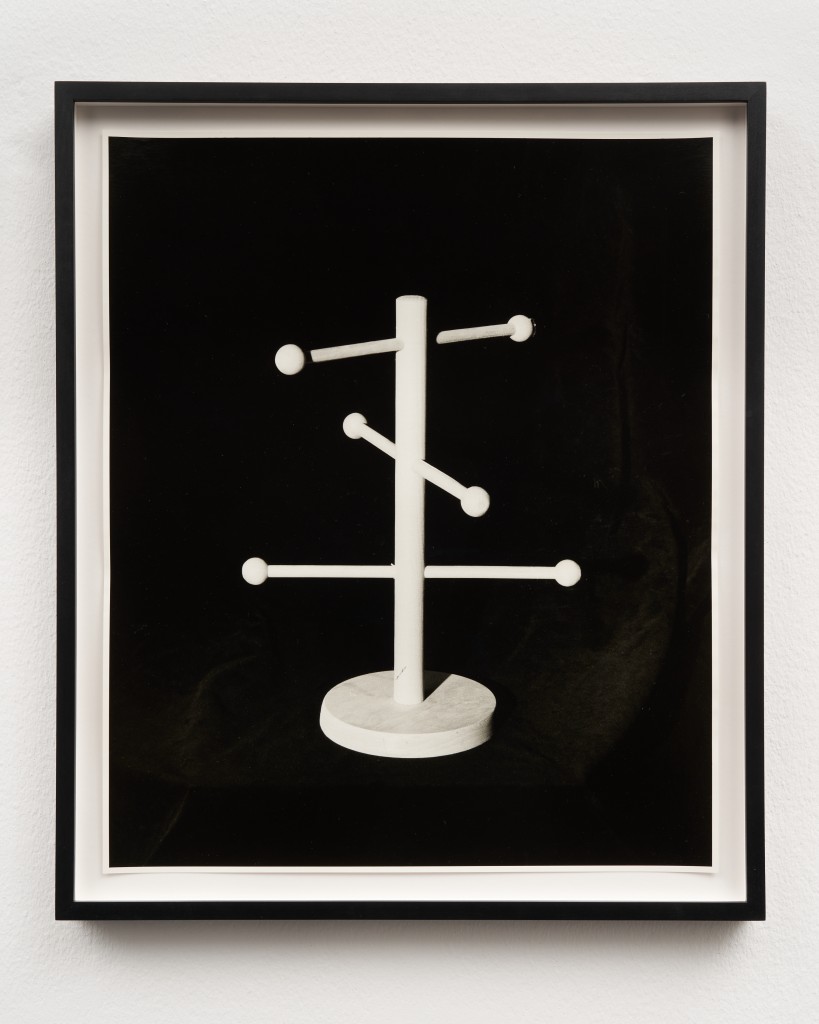
Wooden Pretzel Tree, 2022
Silver gelatin print, 67.2 x 56.9 x 3.5 cm
Photo: © Graysc / Dotgain
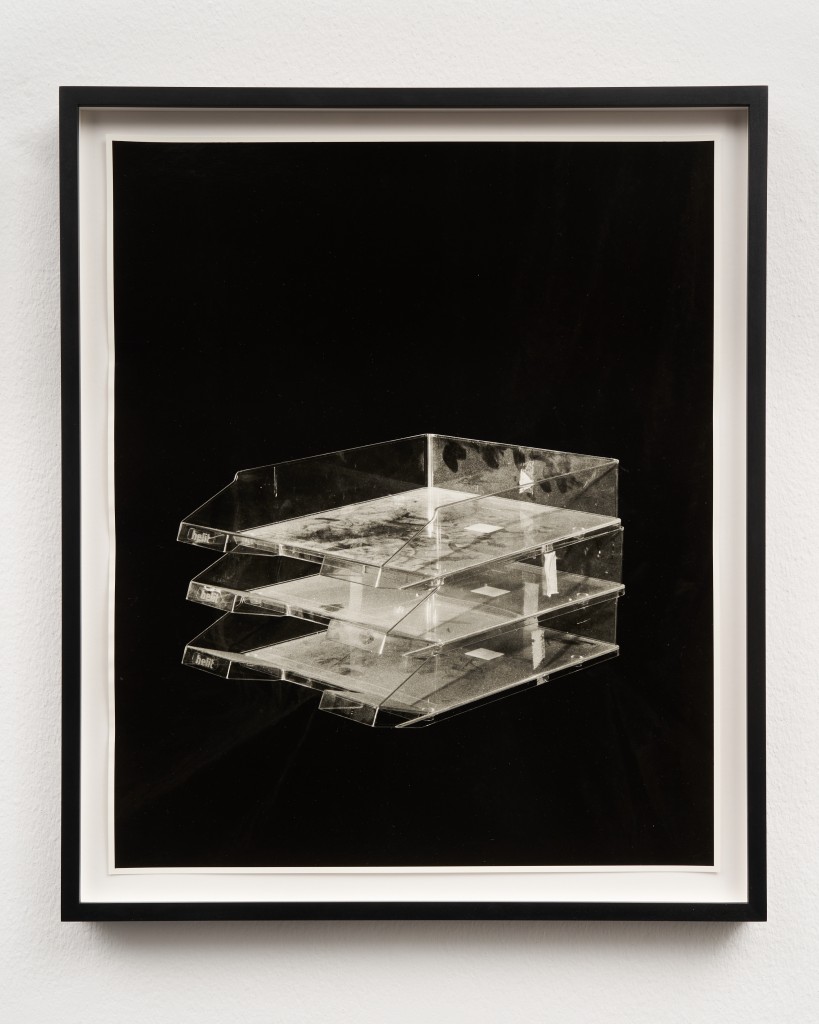
Document Tray Stack of 3, 2022
Silver gelatin print, 67.2 x 56.9 x 3.5 cm
Photo: © Graysc / Dotgain
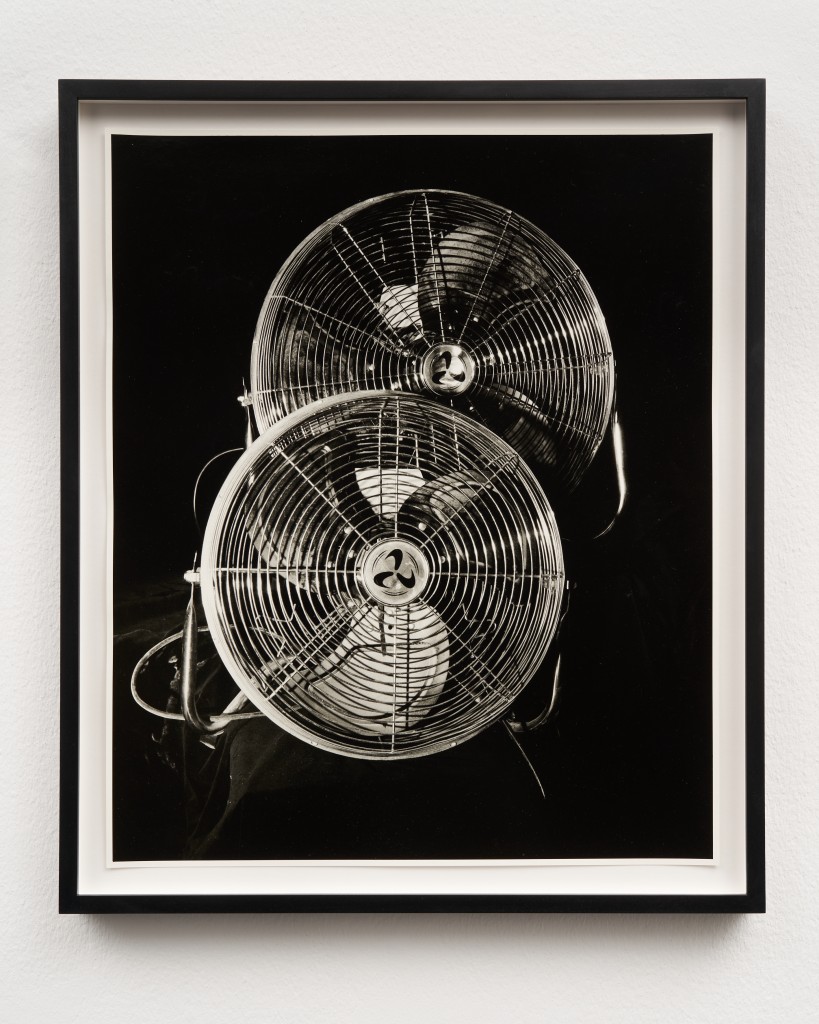
2x Industrial Fans, 2022
Silver gelatin print, 67.2 x 56.9 x 3.5 cm
Photo: © Graysc / Dotgain
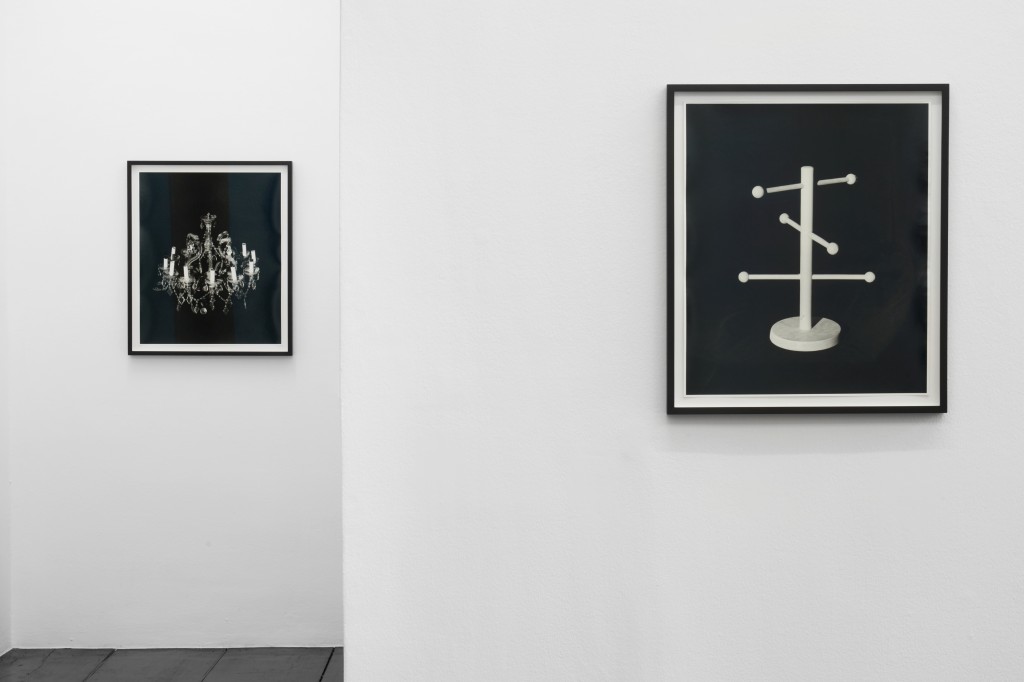
Calla Henkel & Max Pitegeoff, Paradise, 2020–2022, Galerie Isabella Bortolozzi, Berlin
Photo: © Graysc / Dotgain
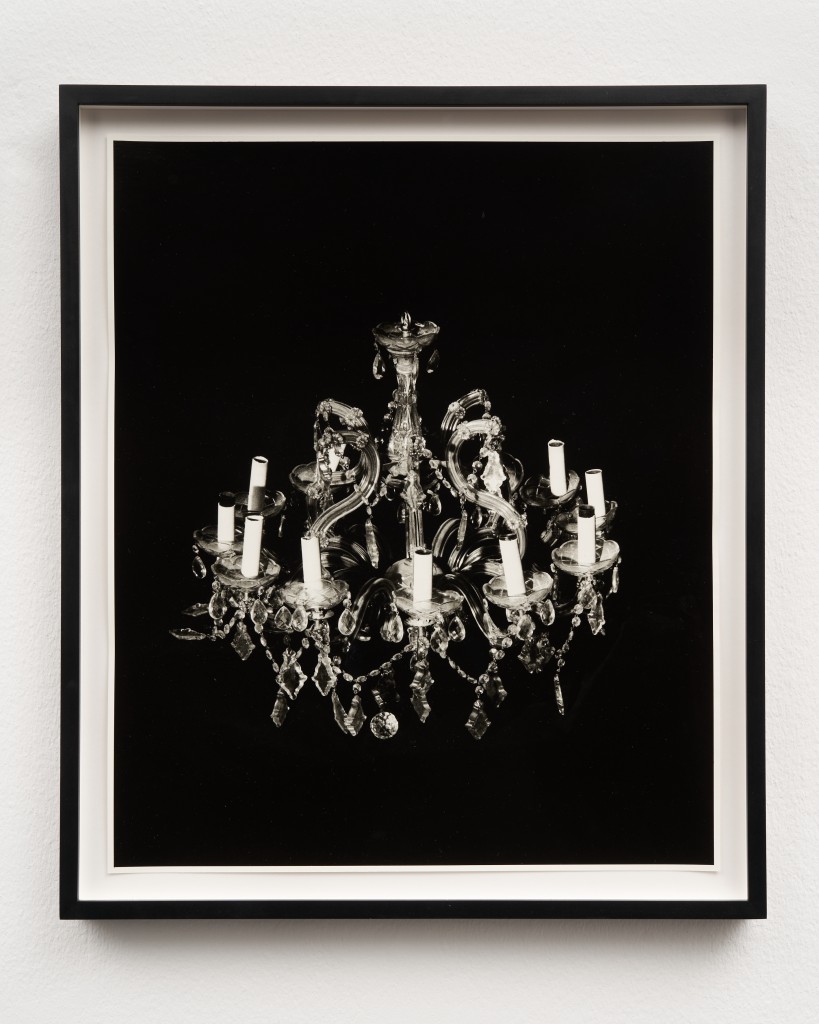
Functioning Antique Chandelier (E14 bulbs), 2022
Silver gelatin print, 67.2 x 56.9 x 3.5 cm
Photo: © Graysc / Dotgain
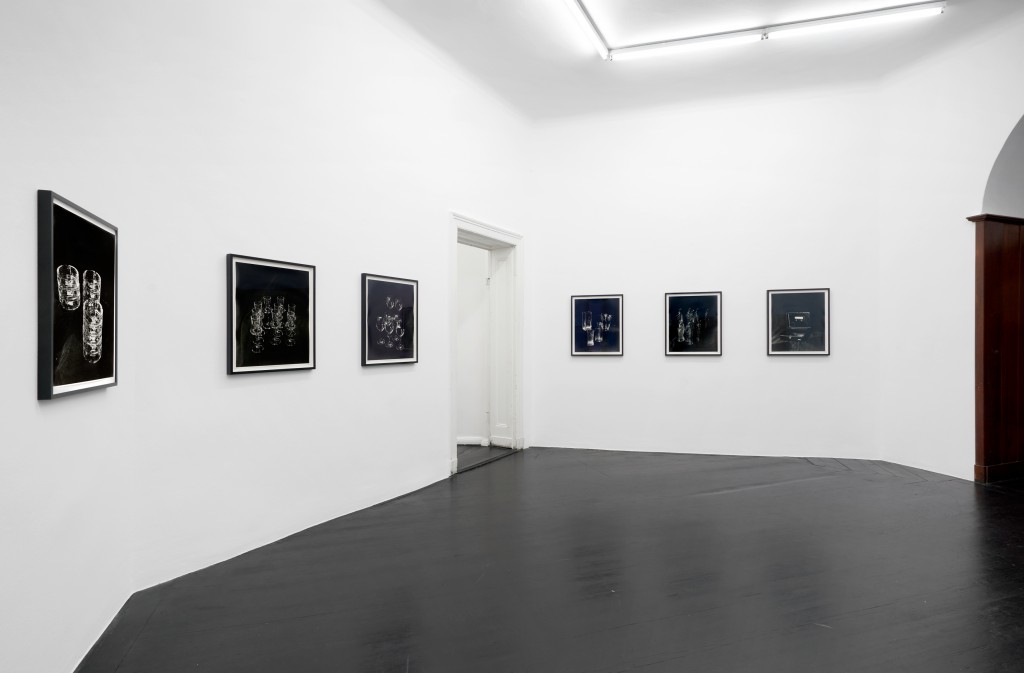
Calla Henkel & Max Pitegeoff, Paradise, 2020–2022, Galerie Isabella Bortolozzi, Berlin
Photo: © Graysc / Dotgain
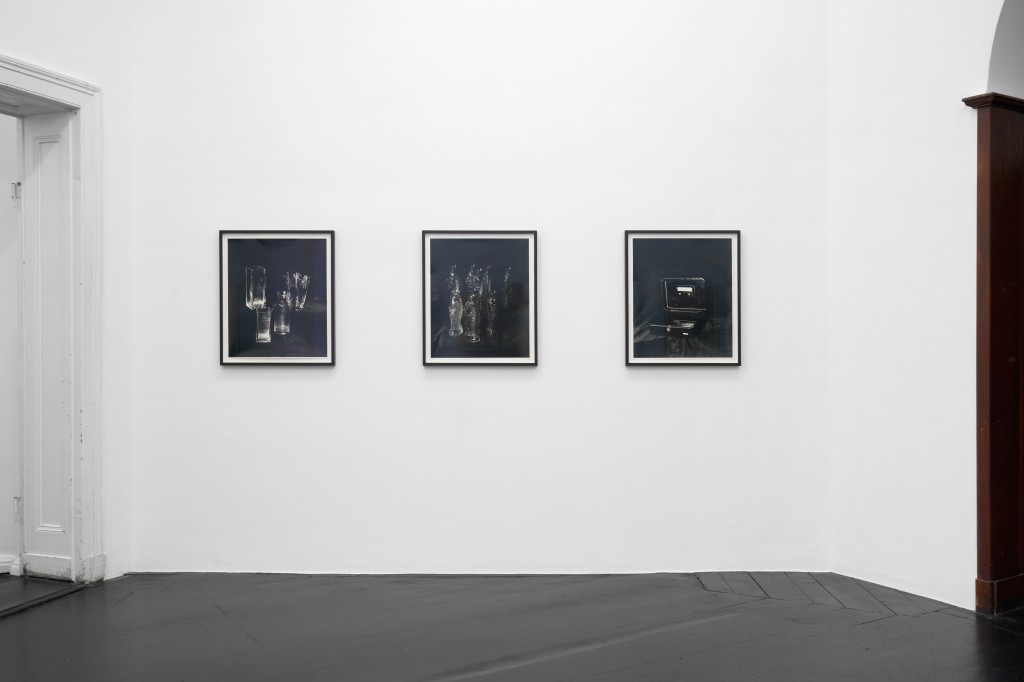
Calla Henkel & Max Pitegeoff, Paradise, 2020–2022, Galerie Isabella Bortolozzi, Berlin
Photo: © Graysc / Dotgain
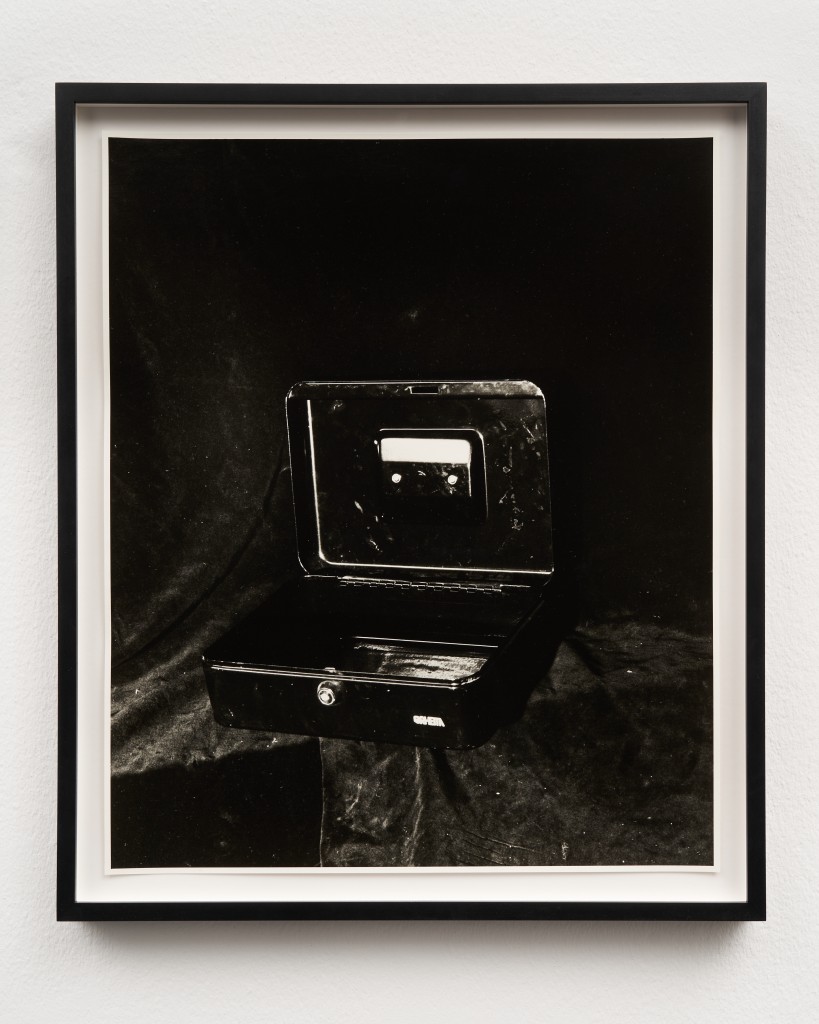
Small Cashbox (no key), 2022
Silver gelatin print, 67.2 x 56.9 x 3.5 cm
Photo: © Graysc / Dotgain
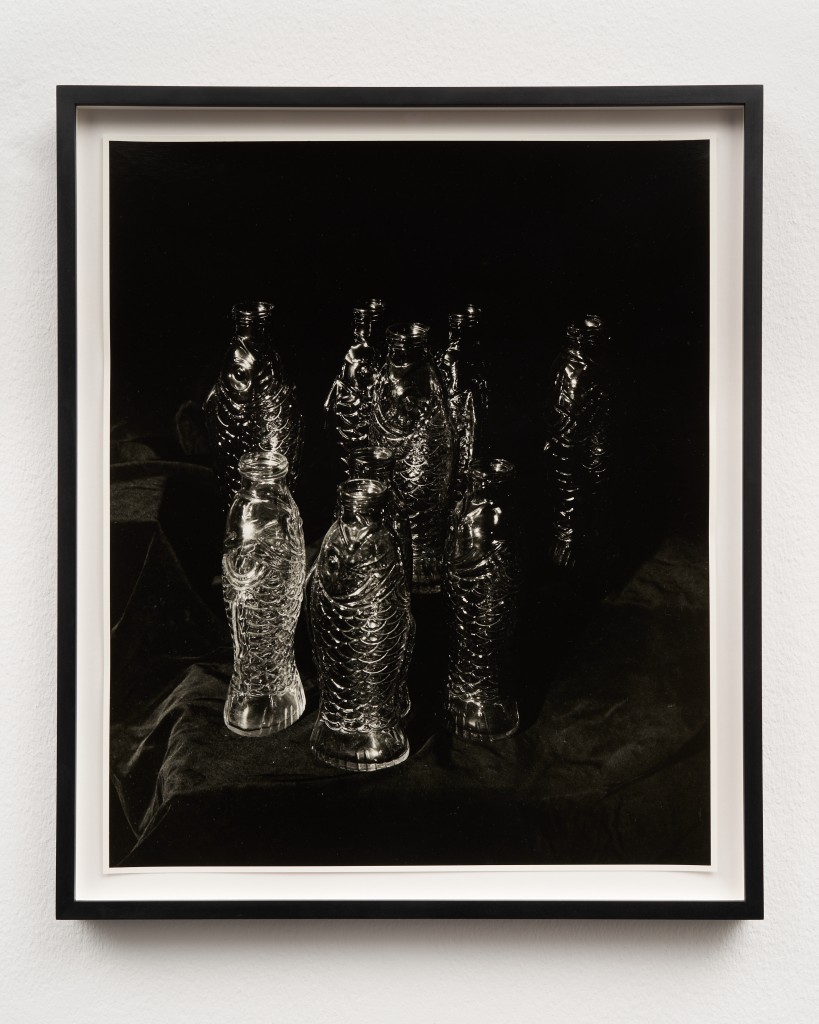
9x Glass Fish Carafes 1l, 2022
Silver gelatin print, 67.2 x 56.9 x 3.5 cm
Photo: © Graysc / Dotgain
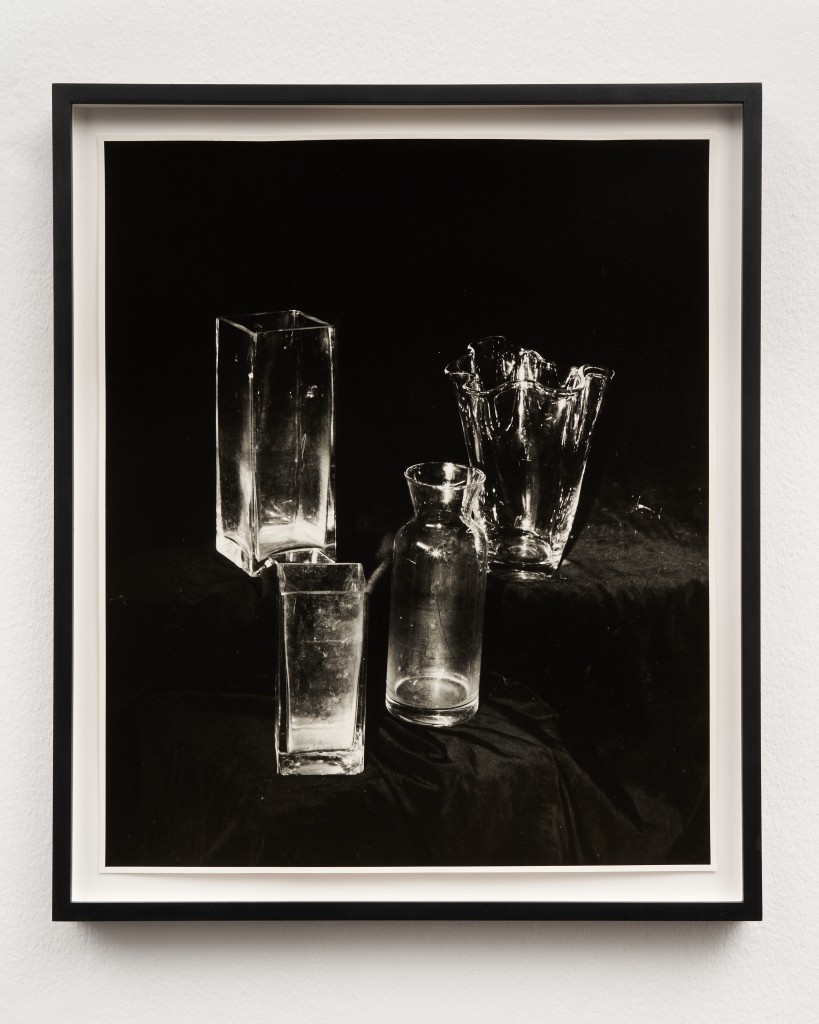
Variety of Glass Vases, 2022
Silver gelatin print, 67.2 x 56.9 x 3.5 cm
Photo: © Graysc / Dotgain
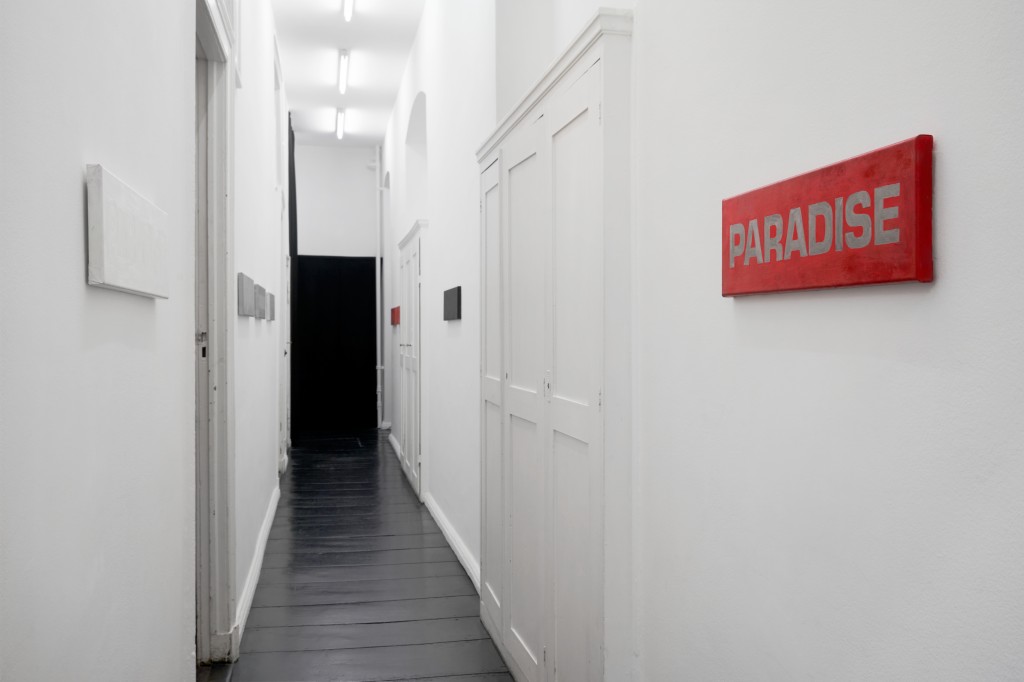
Calla Henkel & Max Pitegeoff, Paradise, 2020–2022, Galerie Isabella Bortolozzi, Berlin
Photo: © Graysc / Dotgain
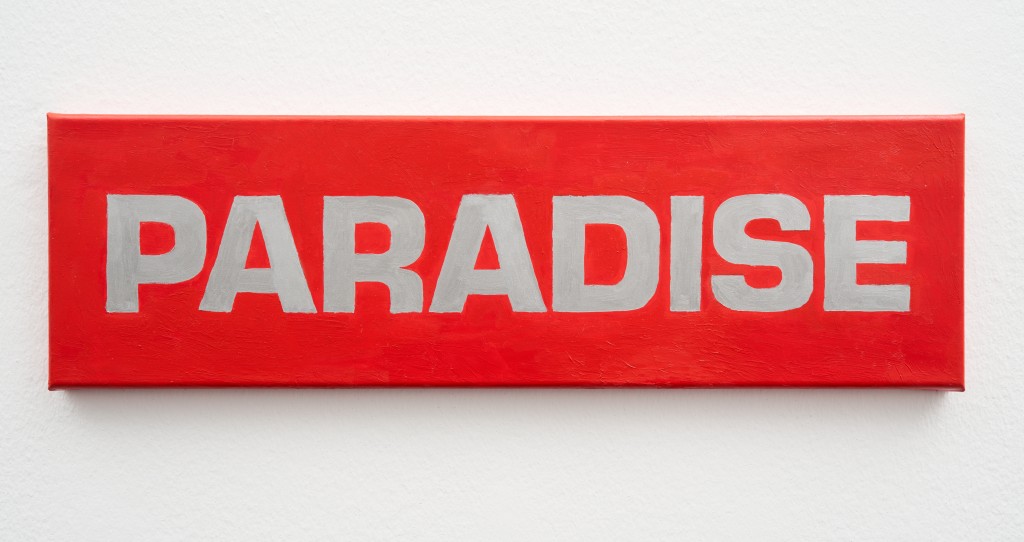
Paradise Restaurant im Hamburger Bahnhof, 2021
Oil and acrylic on canvas, 18 x 60.3 x 2.3 cm
Photo: © Graysc / Dotgain
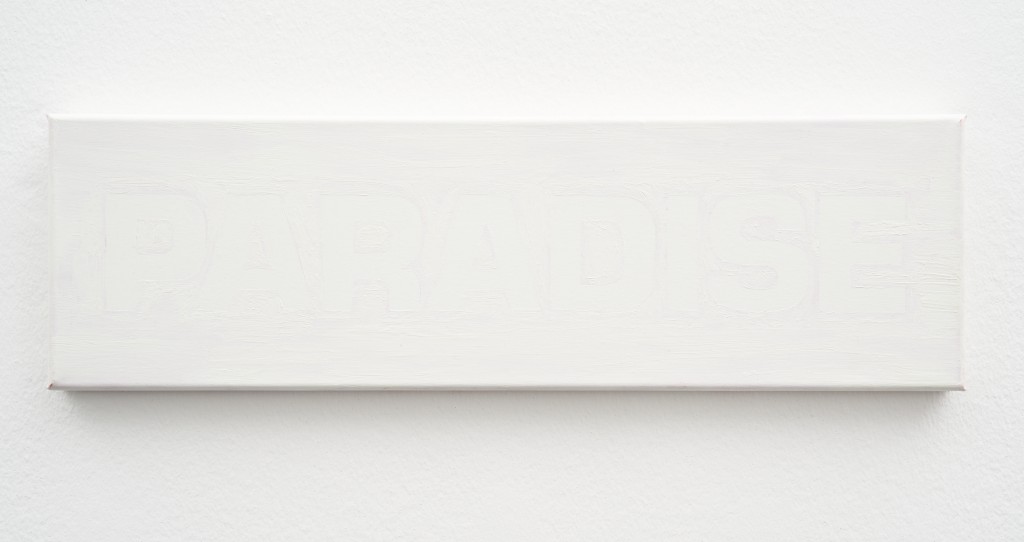
Paradise Blå Dorren, 2022
Oil and acrylic on canvas, 18 x 60.3 x 2.3 cm
Photo: © Graysc / Dotgain
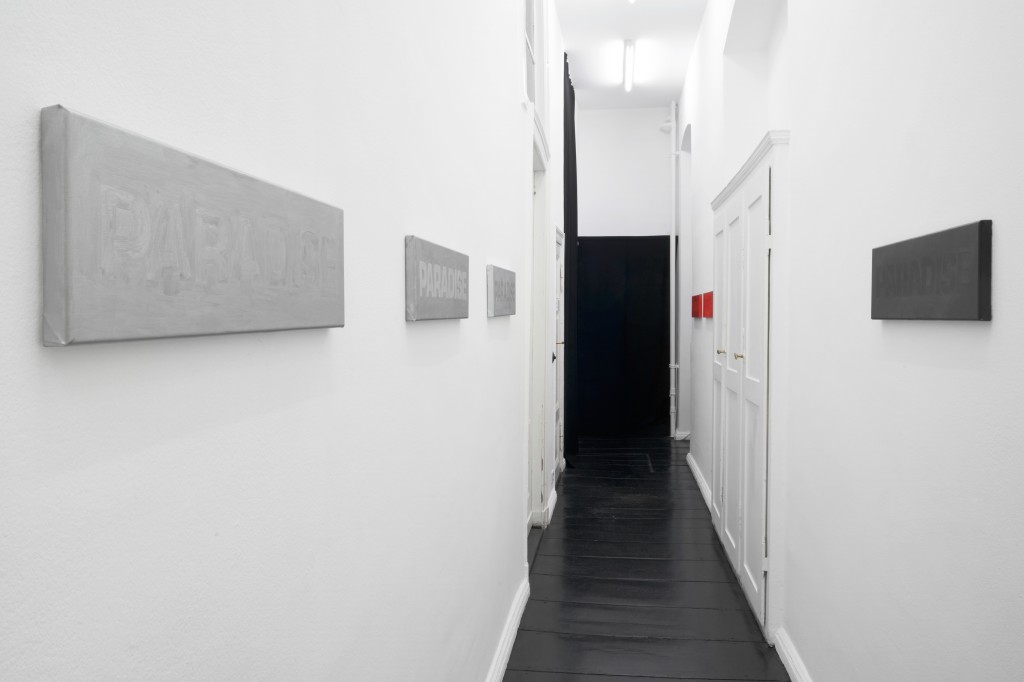
Calla Henkel & Max Pitegeoff, Paradise, 2020–2022, Galerie Isabella Bortolozzi, Berlin
Photo: © Graysc / Dotgain
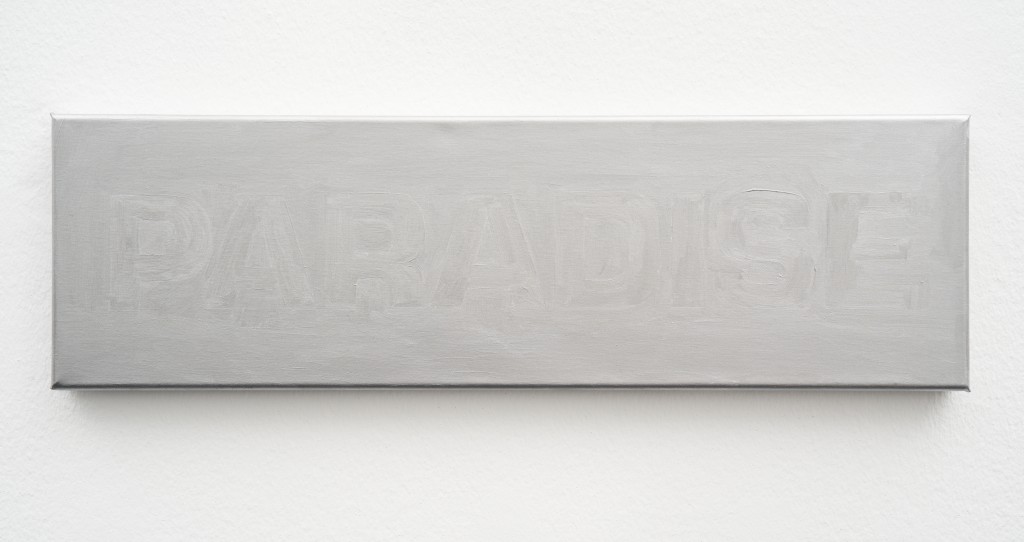
Paradise Hopscotch Reading Room, 2021
Oil and acrylic on canvas, 18 x 60.3 x 2.3 cm
Photo: © Graysc / Dotgain
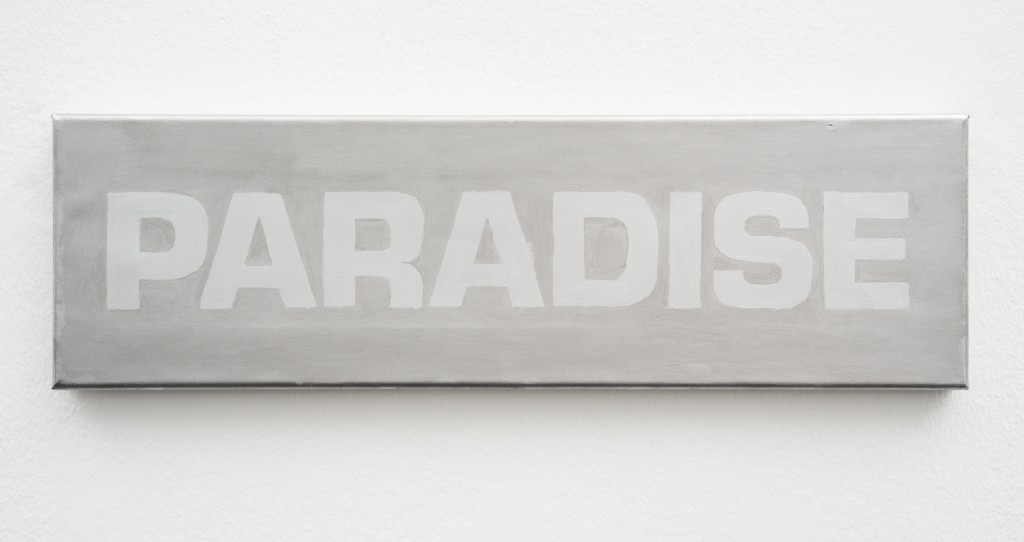
Paradise Bierhaus Urban, 2021
Oil and acrylic on canvas, 18 x 60.3 x 2.3 cm
Photo: © Graysc / Dotgain
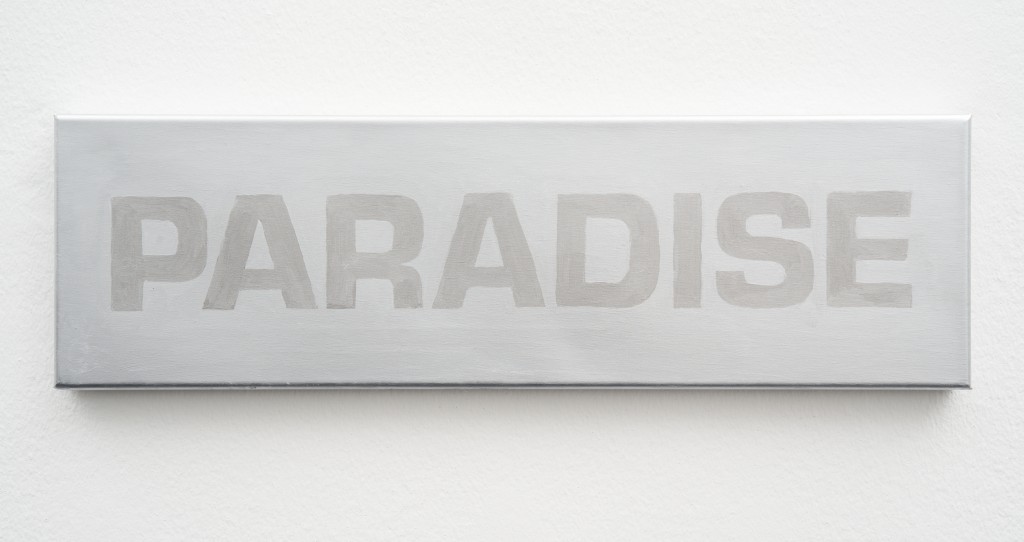
Paradise Eschschloraque, 2021
Oil and acrylic on canvas, 18 x 60.3 x 2.3 cm
Photo: © Graysc / Dotgain
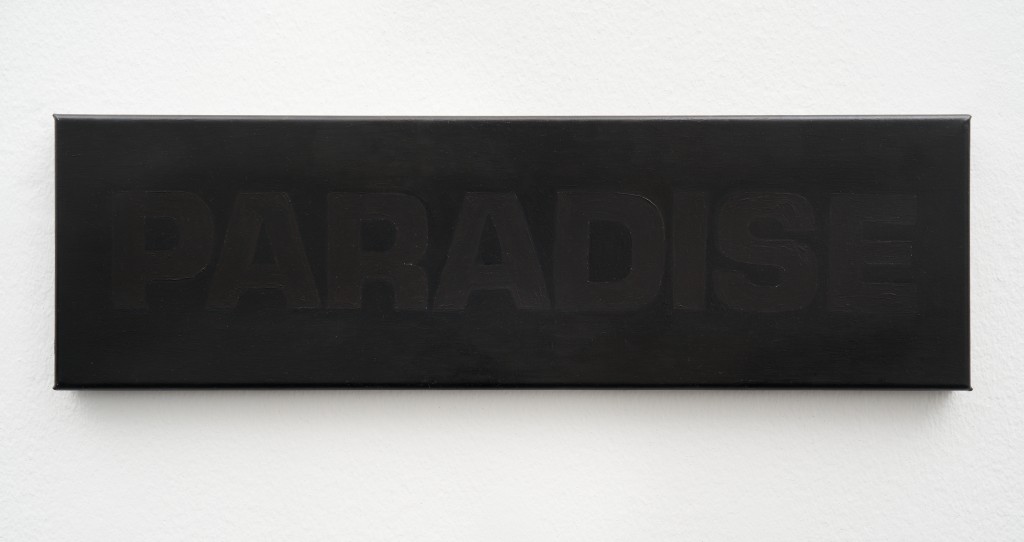
Paradise The Feve, 2022
Oil and acrylic on canvas, 18 x 60.3 x 2.3 cm
Photo: © Graysc / Dotgain
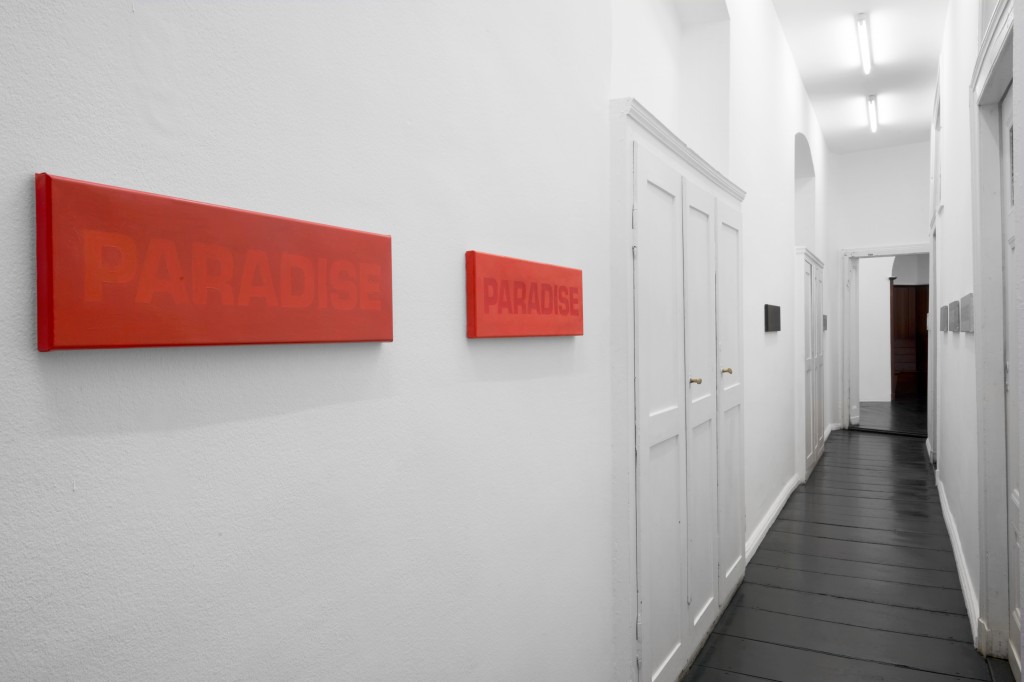
Calla Henkel & Max Pitegeoff, Paradise, 2020–2022, Galerie Isabella Bortolozzi, Berlin
Photo: © Graysc / Dotgain
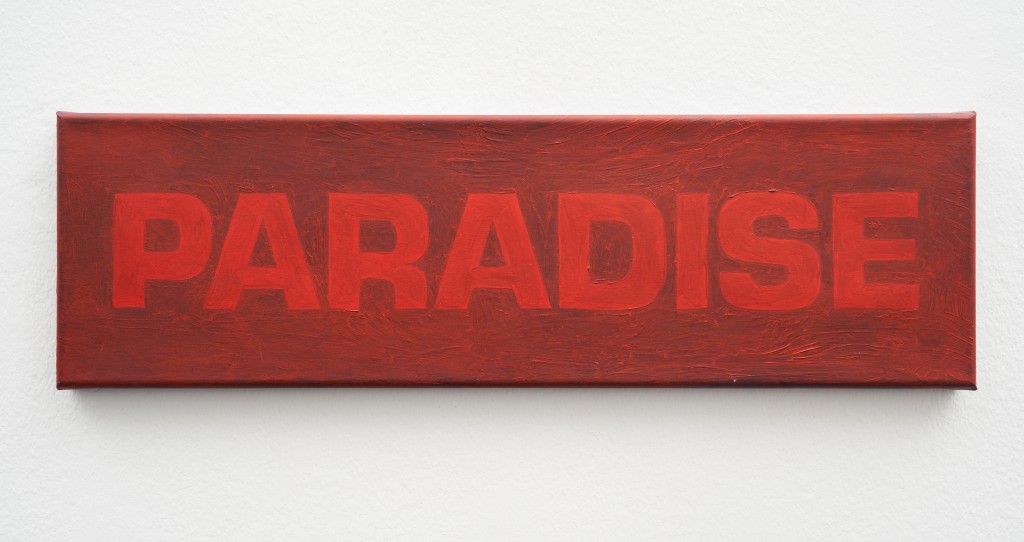
Paradise Le Perrin, 2020
Oil and acrylic on canvas, 18 x 60.3 x 2.3 cm
Photo: © Graysc / Dotgain
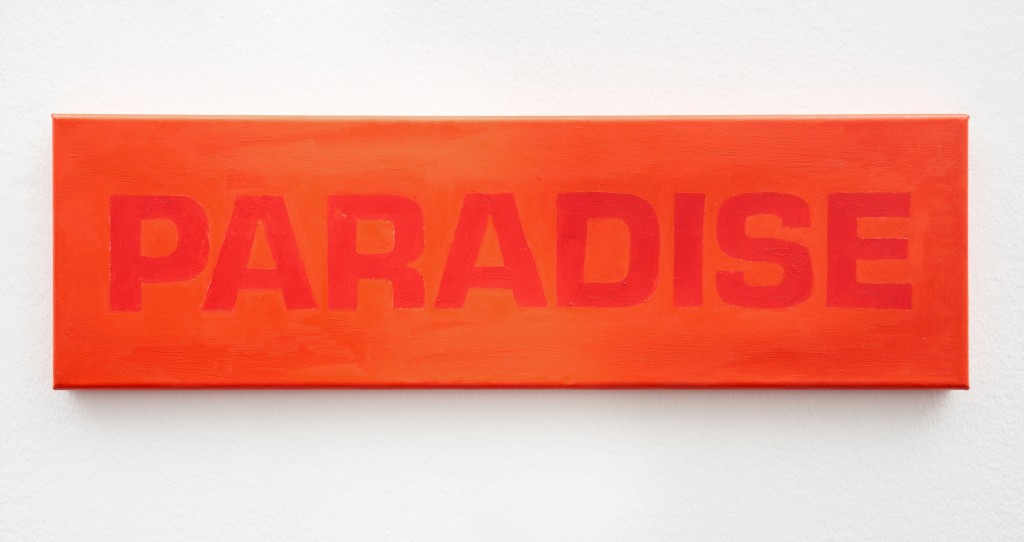
Paradise Closer, 2021
Oil and acrylic on canvas, 18 x 60.3 x 2.3 cm
Photo: © Graysc / Dotgain
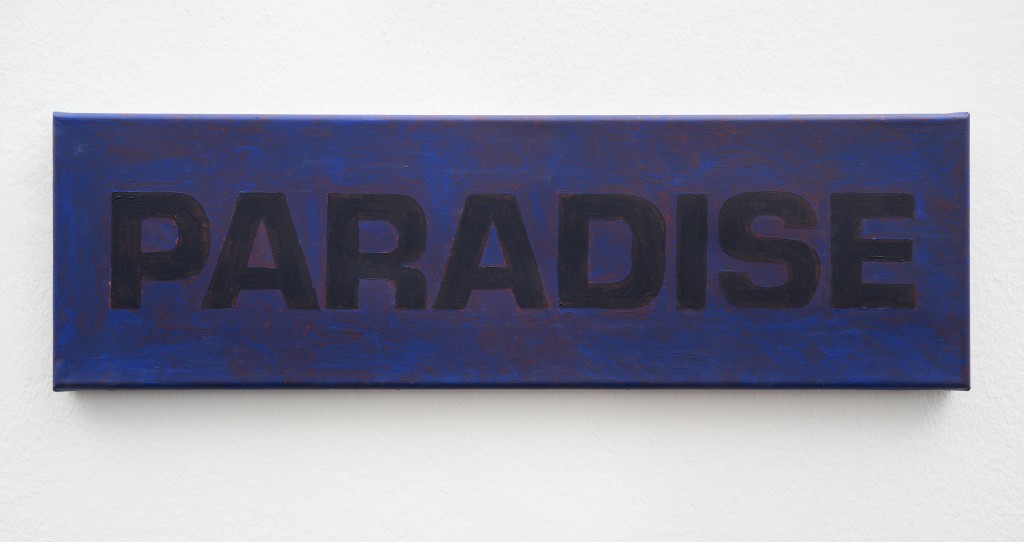
Paradise Chez Fun Funk, 2020
Oil and acrylic on canvas, 18 x 60.3 x 2.3 cm
Photo: © Graysc / Dotgain
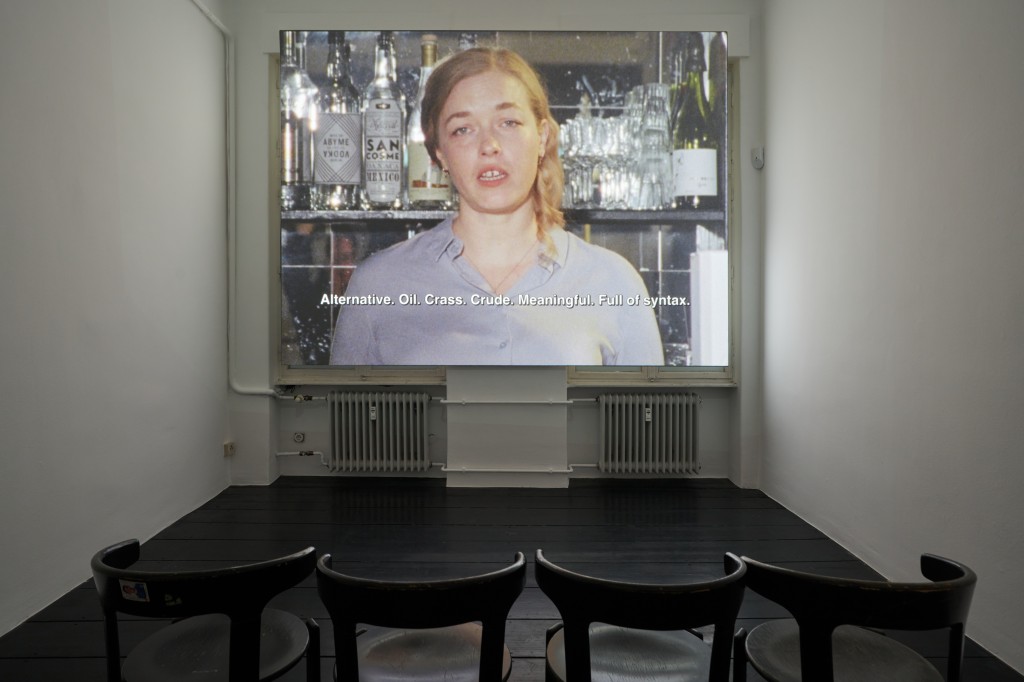
Paradise, 2020–2022
16 mm film transferred to HD video with sound, 81:42 min.
Photo: © Graysc / Dotgain
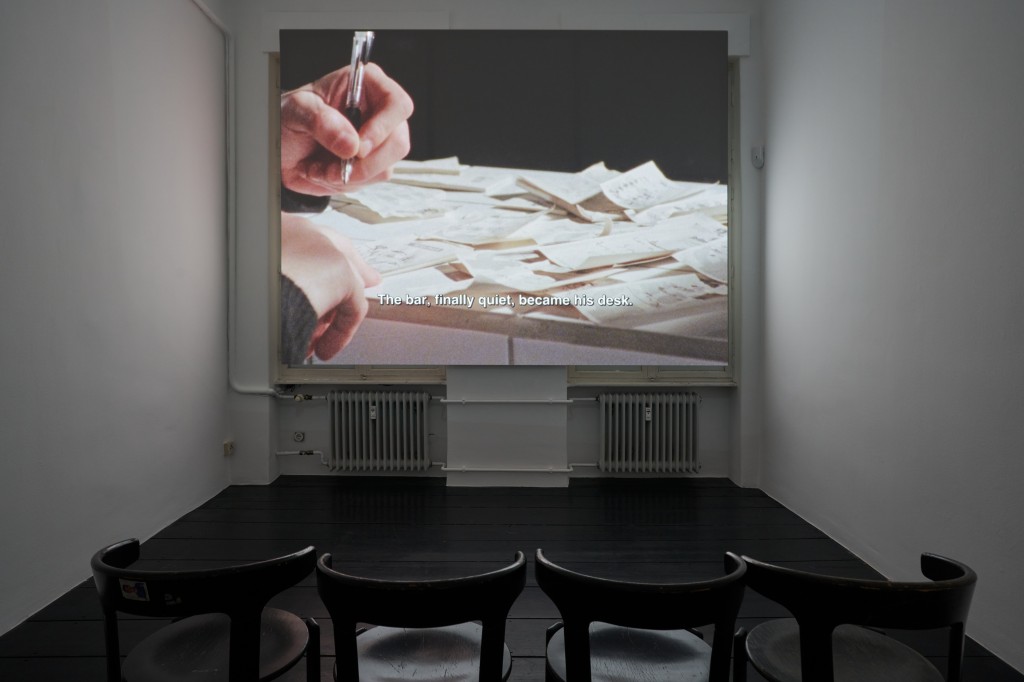
Paradise, 2020–2022
16 mm film transferred to HD video with sound, 81:42 min.
Photo: © Graysc / Dotgain
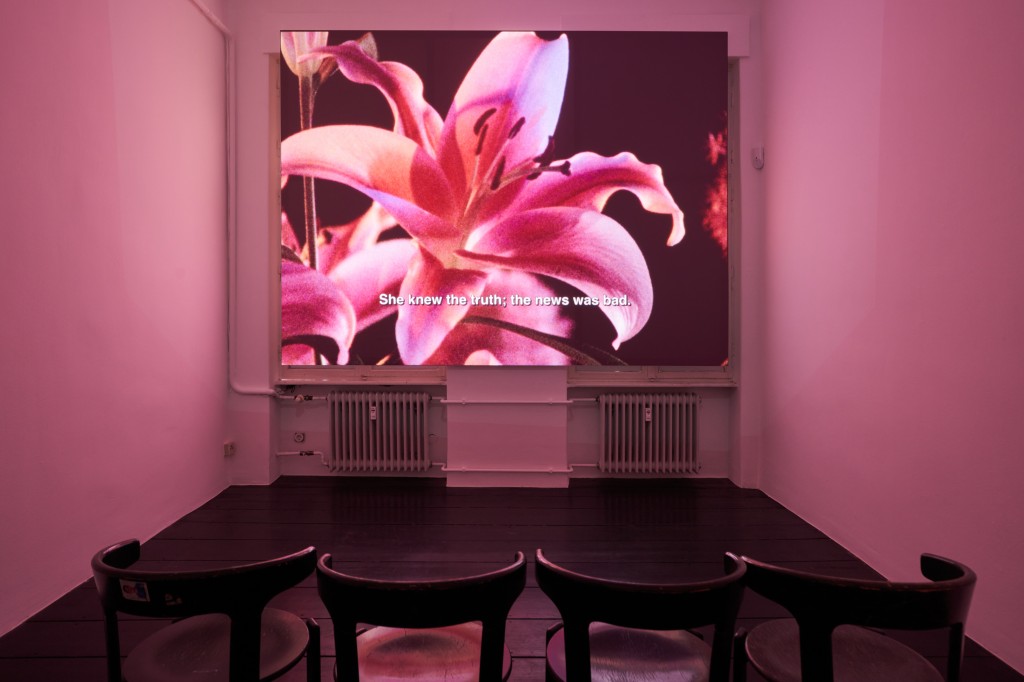
Paradise, 2020–2022
16 mm film transferred to HD video with sound, 81:42 min.
Photo: © Graysc / Dotgain
Over the three years that they ran TV Bar in Berlin, Calla Henkel and Max Pitegoff used the bar as a set to film an episodic series called Paradise. TV Bar was always intended to have two lives: one fictional and one public, both relying on the same infrastructure. For the exhibition Paradise, they will screen all four episodes together for the first time, alongside a series of photographs and paintings.
The series Paradise takes place in a fictional eponymous bar in 2023, and follows a group of bartenders as they navigate an absent boss who wants the bar to function as a newsroom. Henkel and Pitegoff selected the year 2023 as a near future, one that they could move towards with a blend of speculative fiction and approximate truth. Christmas lights appear. The leaves turn green. The narrative becomes part documentation and has no choice but to follow the queasy timeline of the actual bar. It had always been their intention to close in or near 2023 when the chosen future became the present.
Paradise is about labor and performance, how much one has to give away while working. The bartenders are all forced to read text from a teleprompter to the customers, complying with the chronically out-of- touch boss’s hopes of using the bar as a way to spread his own language. When the texts become unhinged, the bartenders decide to take control, but it never quite works out. Instead the story unfolds in their coping mechanisms: the places the bartenders go in their skulls to stay sane. It is a drama about narrative ownership and the struggle to make things in terrible times. It isn’t until the bar gets shut down that the bartenders in Paradise start using the space as they want, and a complicated collective unity appears.
In reality, Henkel and Pitegoff had intended to hand over TV Bar to their employees when they finished filming Paradise. However, the company that owns the building on Potsdamer Strasse is in the process of selling it, and don’t believe the new owners will want a bar, thus refusing to renew the lease. Henkel and Pitegoff, out of curiosity, asked what they think the new owners would prefer in the space, to which they replied, “an insurance agency.” This is now the ending of Paradise.
Paradise is shot on 16mm film and shown with subtitles. The work itself lives somewhere between photography, theater, and long-form poetry. The actors are all friends of the artists, TV Bar employees, or people who drifted into the bar’s orbit. Previously, while TV Bar was open, Paradise was only shown in other bars, looping on small monitors with no soundtrack. In its projected version, it is accompanied by a soundtrack by artist and musician M. K. Frøslev, a former bartender at TV Bar.
Each time Paradise looped at a bar, a new painting was made to accompany it. A selection of these paintings, each named after the bar that originally hosted it, is displayed in the hallway.
The photographs in the exhibition show groupings of objects from the bar’s basement, shot in the vernacular of Ebay Kleinanzeigen. The photographs act as an attempt to extract value from the leftovers of the once living/breathing social space. Ripped from their context, they are now simply a stack of glasses, ashtrays, a pretzel tree, a cashbox, staged for sale on a dirty velvet backdrop – originally curtains from Ex’n’Pop, the long-running bar down the street that closed in 2016. The photos play to obvious nostalgia, while nodding to classical still life painting, reminding us that the cosmic fable of every life is a garage sale.
Contact
T +49—30—26 39 76 20
F +49—30—26 39 76 229
E info(at)bortolozzi.com
Subscribe to our newsletter here →
Schöneberger Ufer 61
10785 Berlin, Germany
Directions
